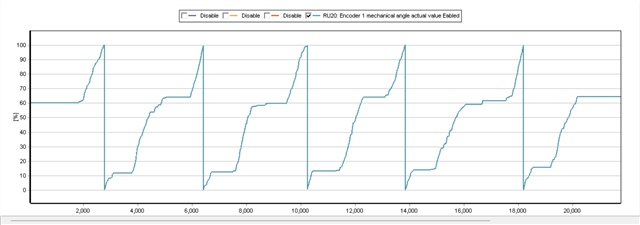Tool/software:
Hello engineers,
I discovered this problem three months ago, but I didn't receive a timely and corresponding response, so I had to ask for help again.
In the Endat routine of CLB, the position CRC calculation of the 31-bit resolution (multi-turn + single-turn) Endat encoder is always incorrect, while it is correct when using the 25-bit Endat encoder. Why is it like this? However, the rest of the program takes into account Endat encoders with a resolution of 31 bits or even more.
We sincerely request the help of all engineers to check this issue.
Regards,
Lin Haonan



